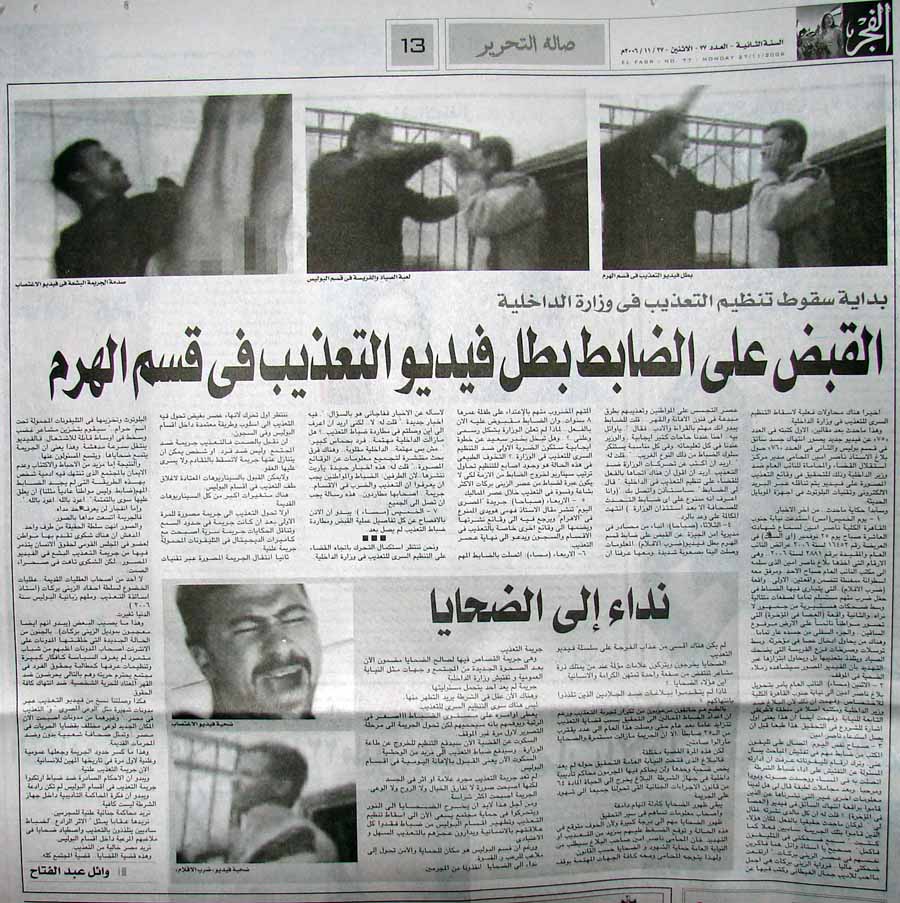I received the following message from an Egyptian-American friend of mine who lives in Cairo:
Dear All,
Last night I was a victim of a sexual attack in Mohandiseen. I had just come back from a lovely trip to Minya and the bus has dropped a few of us off in Midan Libnan to catch cabs. Suddenly, I found myself fenced in between two cars by a guy on a bike. I thought he was waiting for someone or something to pass so he could let me pass, but no. He just sat there on his bike. When I came to tell him to move so I can pass he reached for my jacket. I tried to brush him off, then he immediately dove in and manhandled me. It was the most disgusting experience of my life. I don’t know what happened, but I screamed and hit him with my bag, and he left. By the time folks realized what had happened, it was too late.
I’m writing this in part to share the experience and urge you to be very careful when out on the streets alone. It is with sadness that I say that I no longer feel safe in Cairo. Please, please, please take care and share this with your female friends.
We need to do something collectively to raise awareness about these issues. It was one thing when verbal harassment was accepted, now men feel it’s ok to take things a step further. Nothing will change overnight, for sure. But, we must find a way to bring these incidents to light so we can prevent this from happening to other women.
I’m sick of this disgusting attitude by fellow Egyptian men, and even more sick of the incompetent police force and Suzanne Mubarak’s National Council for Women that do not tackle this severe problem.
UPDATE: NYT had a story yesterday on Downtown’s sexual assaults:
Despair springs from Egypt’s denial of attacks
Government’s fear of appearing incompetent foils justice in attacks on young women
CAIRO, EGYPT — There is fear in the shops along Talat Harb Street, and shame. It is not because of what the people who work here say they witnessed: crowds of men groping women and pulling at their clothing.
They fear the police returning, and they are shamed by their own silence.
“You know how our government works,” said a store clerk, his voice pulled tight as he was guided by a co-worker back into a shop just as he had begun to recount the attacks he witnessed.
Last month, reports surfaced in Egyptian blogs, on television and in newspapers that groups of men had roamed around the city streets during a holiday weekend and attacked young women. There were accounts from eyewitnesses and victims.
But in the culture of Egypt’s one-party state, the charges were received as a critique of the security services.
No soul searching
There was no collective soul searching, no government call for an investigation. There was, instead, adamant denial followed up by state-sponsored intimidation of potential witnesses.
“What those sick people described humiliates all Egyptians,” said an official with the Interior Ministry, who asked not to be identified.
“You think Egyptians would see something like this happening and stand back and watch?”
Last month, the Associated Press reported that police had arrested eight men and women as they tried to protest against the sexual harassment of women.
There is an abiding sense that Egypt is out of order and a frustration over systemic incompetence and negligence: a ferry disaster in which more than 1,000 died; train crashes that killed hundreds; and government bureaucracies that seem incapable of responding.
But the reaction to what happened during Id al-Fitr, which marks the end of Ramadan, has infused a deep sense of despair, deeper than usual, among the small segment of this society pressing for human rights, democracy, rule of law — and improved status for women.
“There is nothing that works right,” said Ahmad Fouad Negm, Egypt’s most popular contemporary poet. “Everything is corrupt and loose.”
Witness steps forward
There is still uncertainty over what exactly happened in the streets that day.
“An individual called Wael Abbas who has an Internet site called The Egyptian Conscience is the one who invented this lie,” reported a pro-government newspaper, Rose al-Youssef.
Abbas is a young man who never goes anywhere without his digital cameras.
He said he witnessed packs of young men hunting down young women, grabbing at their bodies.
“I saw two girls wearing those khaliji abaya,” he said referring to the black flowing gowns favored by women in the Persian Gulf region. “Guys surrounded them and pulled their clothes and veils and groped them.”
The authorities say none of it happened.
